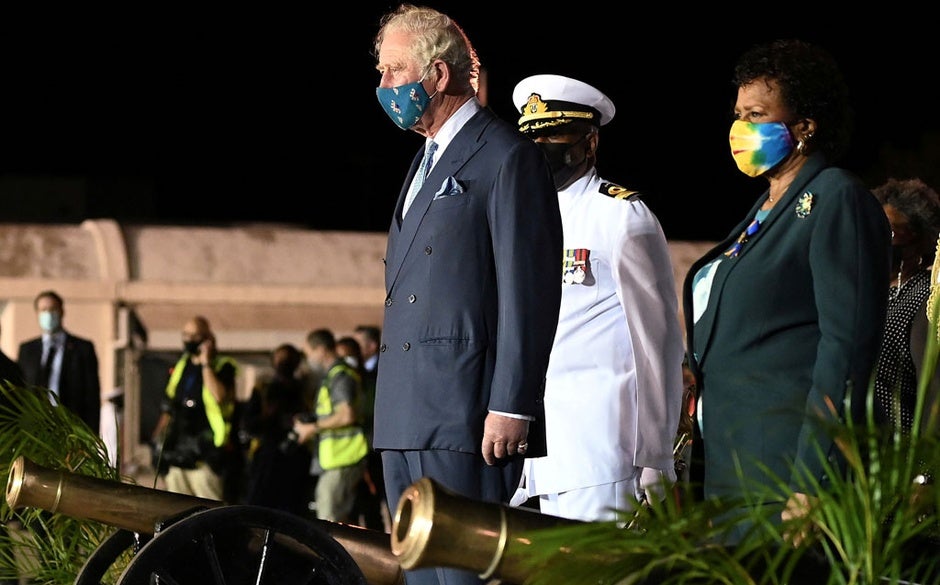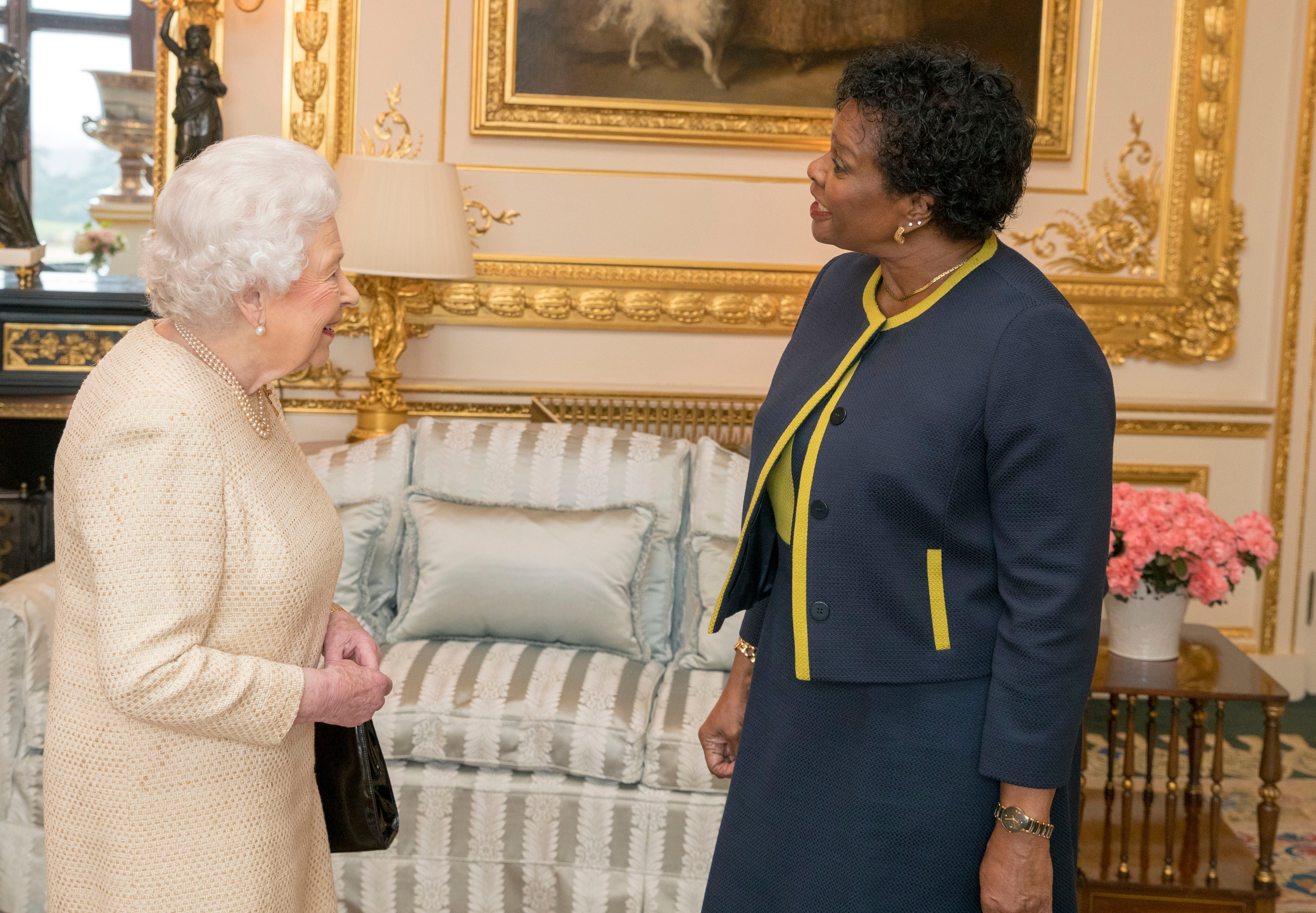‘Slavery was an atrocity,’ Prince Charles says as Barbados becomes a republic
Queen sends new republic her ‘warmest good wishes for your happiness, peace and prosperity in future’
Prince Charles has acknowledged the “appalling atrocity of slavery”, describing it as something “which forever stains our history”, during the ceremony marking Barbados’ historic transition to a republic.
Prince Charles summed up the period when the UK was one of the leading players in the transatlantic slave trade as the “darkest days of our past”, but looking to the future said the “creation of this republic offers a new beginning”.
The prince will be head of state of many nations in the Caribbean when he becomes king and his words will resonate across the region.
Barbados’ ties with the British monarchy going back centuries were severed just after the clock struck midnight on Tuesday morning when the nation’s first president, Dame Sandra Mason, was sworn into office, replacing the Queen as head of state during a televised open-air ceremony in the capital Bridgetown.
In a message to the president and the people of Barbados, the Queen sent the new republic her “warmest good wishes for your happiness, peace and prosperity in the future” and praised the nation which has a “special place” in her heart for “its vibrant culture, its sporting prowess, and its natural beauty”.
The 95-year-old had been Barbados’ head of state since it became independent in 1966, and expressed happiness that the country will remain a part of the Commonwealth.
Prime minister Boris Johnson said the UK and Barbados will remain “steadfast friends and allies” with “a partnership built to last”.
The heir to the throne watched the symbolic moment as the Queen’s standard was lowered for the last time and the presidential flag raised in its place at midnight local time on 30 November, the 55th anniversary of independence from Britain.

Charles told guests including Barbados’ prime minister Mia Mottley and pop star Rihanna, who was named an ambassador for her home country Barbados in 2018, that: “The creation of this Republic offers a new beginning, but it also marks a point on a continuum, a milestone on the long road you have not only travelled, but which you have built.
“From the darkest days of our past, and the appalling atrocity of slavery, which forever stains our history, the people of this island forged their path with extraordinary fortitude.
“Emancipation, self-government and independence were your way-points. Freedom, justice and self-determination have been your guides.
“Your long journey has brought you to this moment, not as your destination, but as a vantage point from which to survey a new horizon.”
His words echoed a speech he gave during a tour of west Africa in 2018 when, after visiting a site in Ghana where Africans were forced into a brutal and murderous regime of enslaved labour, he described the slave trade as an “indelible stain” on the world.
There have been planned protests in the run-up to the ceremony with activists in Barbados demanding an apology and reparations from the monarchy and UK government for slavery; in addition to this, campaigners have questioned Prince Charles’ involvement in tonight’s inauguration.
Previous monarchs supported or made money from the transportation and selling of people for profit during the 17th and 18th centuries.

Referring to the protests and disgruntlement aimed at the British monarchy, British High commissioner to Barbados Scott Furssedonn-Wood told The Independent: “This is obviously an independent country, a vibrant democracy of open society, freedom of the press and freedom of speech – so it’s good that there’s a lively debate and it’s right that people are able to express their opinions.
“It’s important, as the country makes its transition, that people talk about the things that matter to them, the things that they may be excited about but also the things that they may be angry and have concerns about.
“That’s how democracies work so people should be free to express those opinions, it’s a sign of a healthy debate.”
On the topic of reparations, however, and calls for the prince to apologise for the monarchy’s role in slavery, the commissioner was less explicit.
“The strength of feeling will be clear from the prince’s speech; it’s a feeling he’s expressed before and will continue to do. As an individual the prince for a very long time has been committed to inclusion, to fair societies, to opportunities for all in the UK and other places he’s been.
“This is not just him coming out with a phrase, this is something that he believes very passionately in himself – that you’ve got to acknowledge injustices where you see it but you’ve got to find practical ways of responding to the here and now and building a better future. He’s playing his part in that.
“It’s absolutely right that we express that deep sorry for that appalling atrocity of slavery and the unbelievable suffering that was caused; I can see that this still creates a very powerful sense of injustice here in the Caribbean and other parts of the world as well,” he said.
“We’ve got to acknowledge that and ensure people don’t forget what happened, that each generation of young people understand that aspect of the past so we ensure that modern slavery in all its forms can never happen again.
“The past was, in many ways, a very dark period and must never be repeated.”
Join our commenting forum
Join thought-provoking conversations, follow other Independent readers and see their replies
Comments
Bookmark popover
Removed from bookmarks